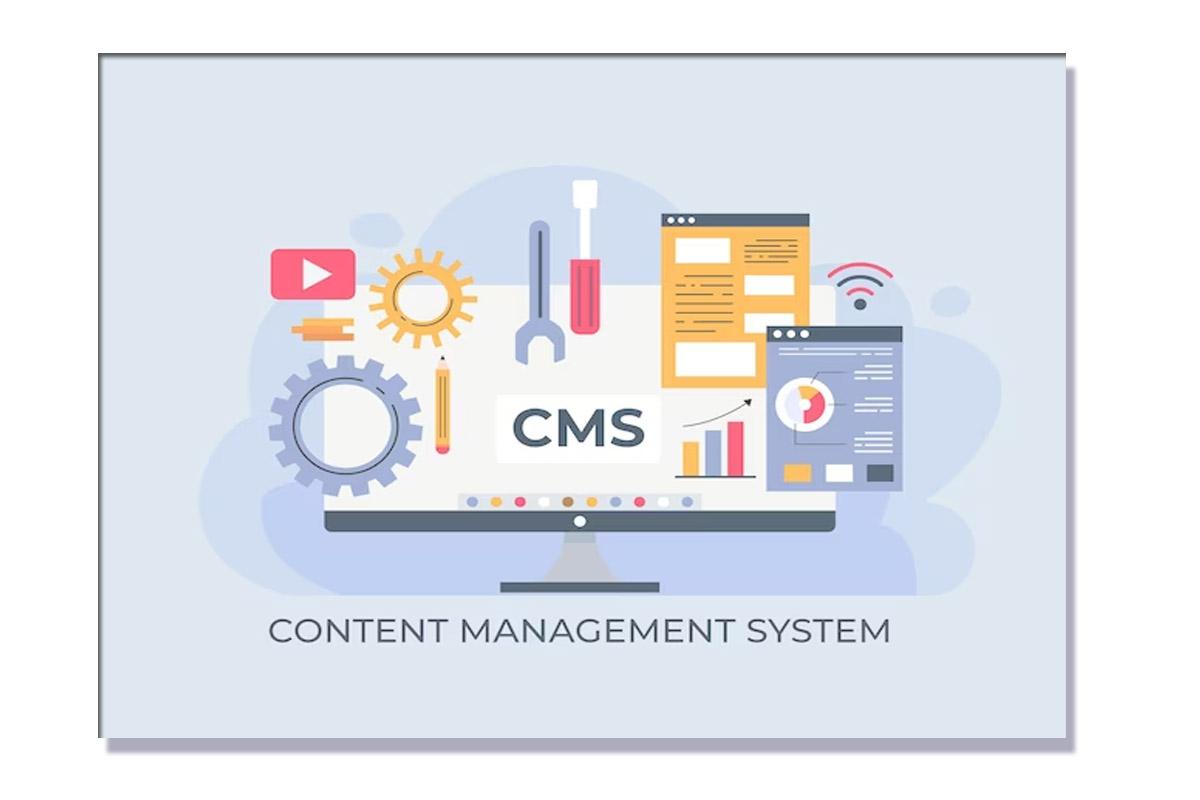What is a Content Management System (CMS)?
Introduction
The content management system (CMS) is an application that will help users develop, manage, and alter content on a website. The most widespread open-source CMS platforms are WordPress. A content management system (CMS) like WordPress is built to make it easy to manage your website content without learning all the technicalities of programming and coding.
CMS is an application system that allows users to create and edit web pages. It is an essential tool for any website owner who wants to update their site without learning HTML or programming languages like PHP or MySQL. The most popular CMS solutions include WordPress.
How does Content Management System (CMS) Help the Development of the Website?
A CMS is a valuable tool to support you in managing and keeping your website up to date. It’s essential for business websites because it enables you to keep information accessible to anyone and everyone on the web. Therefore, your website visitors will get to know your company and those who may be looking for the products and services you offer.
Additionally, CMS gives your website a professional look by allowing you to quickly change images, texts, and videos in different resolutions. Finally, it saves time and effort for your web designer as he can control your website with a single software that can update without writing a single line of code.
In addition, you can add new pages, upload videos and photos, change product prices, make gifts and offer discounts to your customers using this CMS. CMS is a web-based platform that facilitates website content management.
How to Develop A Website with a Content Management System (CMS)?
Publishing content on the website is one of the most intimidating tasks for beginners. However, building a website with CMS is much easier than making one without it.
This is where CMS come in – It will let you quickly create and publish your blog or website without seeing a line of code. Content management systems are straightforward, which is why many beginners prefer them over traditional HTML/PHP formats.
A CMS is used in web design and application development to create and manage content. A content management system helps you to make changes even if you don’t have technical skills like HTML, CSS, or programming knowledge. The most popular content management systems are Microsoft SharePoint and WordPress. For example, when you develop a website with WordPress, you initially create pages and posts. You can also use it to create custom URLs for all your posts.
Benefits of Using a CMS
It is easier to update the information compared to HTML coding. It provides a wide range of features to create better websites. The interface is easy to use and does not require any specific skills. Other than these elementary features, there are many other benefits of using a CMS, which are discussed below:
Optimal Performance:
Web designers and developers must create a website that can load optimally, as it helps improve visitors’ experience. Unfortunately, loading time is also essential for high-traffic websites and may decrease bandwidth. On the other hand, CMS sites usually load faster.
Enhanced Security:
One of the important reasons for developing a content management system is to enhance security. In addition, since this system is based on a back-end server, it becomes much easier to manage a website than a website with all its files in one directory.
Easy Update:
Since the CMS is based on back-end servers, it becomes easy for users to update the website content without making changes to HTML coding, etc. Simply uploading new files via FTP (File Transfer Protocol) is enough to update the entire site in seconds.
On-Page Search Engine Optimization:
Data feeds embedded in CMS websites provide accurate information about the content of those websites. Thus, major search engines like Google facilitate indexing those sites and create higher ranks during searches.
Availability of Plug-ins:
A plug-in is a small tool that improves web functionality and may include functionality such as adding social media buttons, tags, etc. Plenty of free and paid add-ons are available, which users can install quickly.
Mobile Compatibility:
CMS websites have become mobile-friendly, allowing users to access those websites from mobile devices with high levels of convenience. Thus, it is one of the essential advantages that drew the attention of web designers and developers towards this system.

